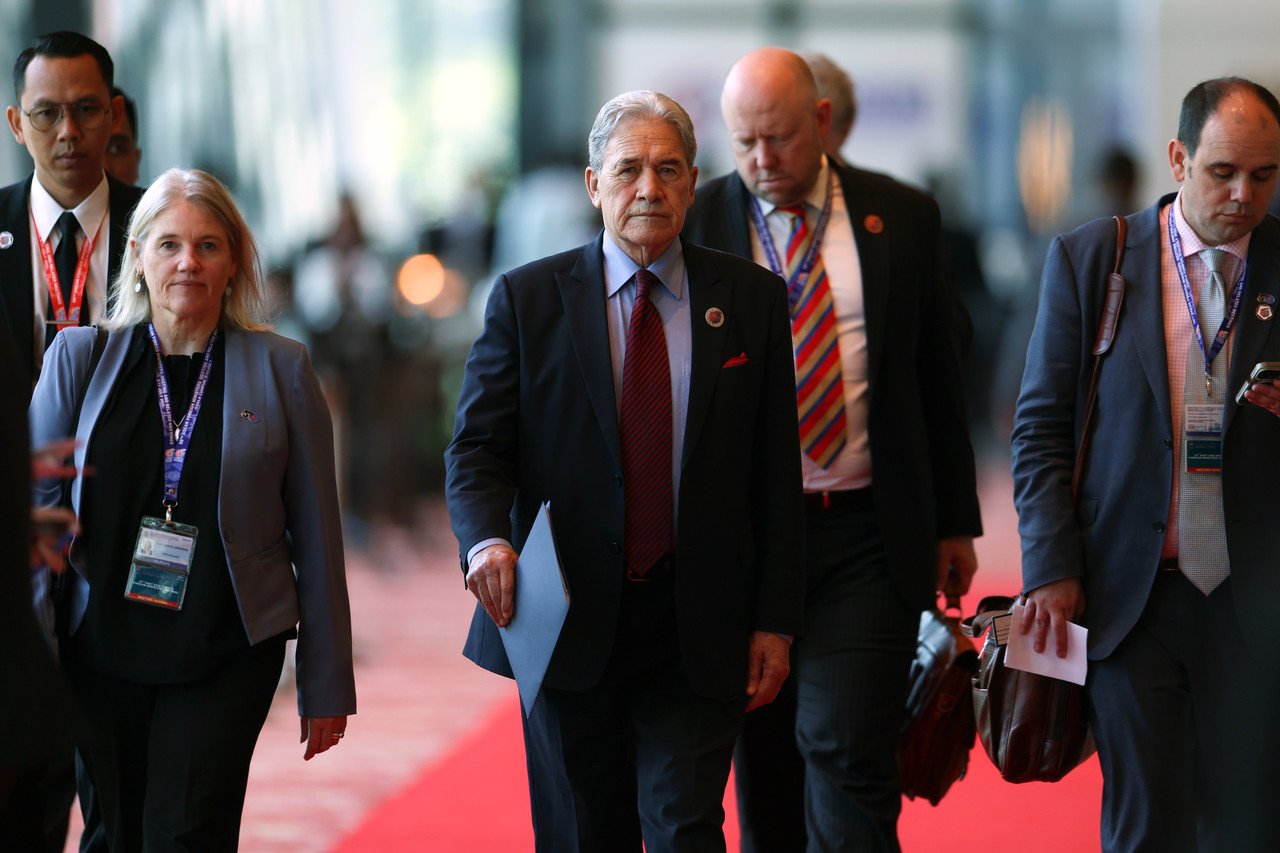New Zealand Backs ASEAN's Resolve For Nuclear-Free Region Amid Rising Global Tensions

By Wan Muhammad Aslah Wan Razali
KUALA LUMPUR, July 13 (Bernama) -- New Zealand has voiced firm support for ASEAN’s continuous efforts to keep the region free of nuclear weapons, describing the Southeast Asian Nuclear Weapon-Free Zone (SEANWFZ) Treaty as a vital pillar of regional peace and security.
Its Foreign Minister Winston Peters said the treaty, which came into effect in 1997, is “a tangible demonstration of ASEAN’s deep-rooted wish” to prevent nuclear escalation, especially as nuclear-armed states continue to modernise and expand their arsenals amid growing global tensions.
“We are a State Party to the Treaty of Rarotonga, which established the South Pacific nuclear-free zone.
“We also support other nuclear weapon-free zones and their importance in contributing to regional peace and security,” he said in a written response to Bernama on the sidelines of the ASEAN Foreign Ministers’ Meeting (AMM) and Related Meetings.
Peters said New Zealand views SEANWFZ as part of a broader network of nuclear weapon-free zones across the southern hemisphere, including in Latin America, Africa, and the South Pacific.
He stressed the importance of these zones in reinforcing global disarmament norms, especially at a time when strategic uncertainties are intensifying.
“It’s even more critical that, as fellow members of nuclear weapon-free zone treaties, we continue to support each other in upholding their principles.
“It’s also important that we continue to cooperate in support of the Nuclear Non-Proliferation Treaty (NPT) and the Treaty on the Prohibition of Nuclear Weapons (TPNW), which both our countries have joined,” he said.
On regional disaster cooperation, Peters reaffirmed Wellington's commitment to actively working with ASEAN countries, to strengthen early warning systems, disaster preparedness, and post-crisis recovery efforts.
He said New Zealand’s National Emergency Management Agency (NEMA) maintains regular engagement with its regional counterparts and takes part in various regional platforms, including the APEC Senior Disaster Management Officials Forum.
"These engagements provide opportunities to discuss shared challenges and identify opportunities for collaboration,” he added.
Peters noted that New Zealand has contributed over NZ$5 million (US$3.05 million) in financial and technical support to the ASEAN Coordinating Centre for Humanitarian Assistance on disaster management (AHA Centre).
He added that New Zealand experts have led training for ASEAN member states on hazard response and crisis leadership.
He also highlighted cooperation with Malaysia on halal trade, noting that New Zealand remains a reliable supplier of high-quality halal food products and is working closely with Malaysian authorities to refresh their Halal Implementing Arrangement.
“We are making good progress and also working toward establishing an electronic certification exchange between our two countries, including for halal certificates,” he said.
Peters had led the New Zealand’s delegation to several high-level sessions at the event, including ASEAN-New Zealand Post Ministerial Conference, the 15th East Asia Summit Foreign Ministers’ Meeting, and the 32nd ASEAN Regional Foreign Ministers’ Meeting.
The meetings held from July 8 to 11 was hosted under Malaysia’s 2025 ASEAN Chairmanship with the theme ‘Inclusivity and Sustainability’.
-- BERNAMA





